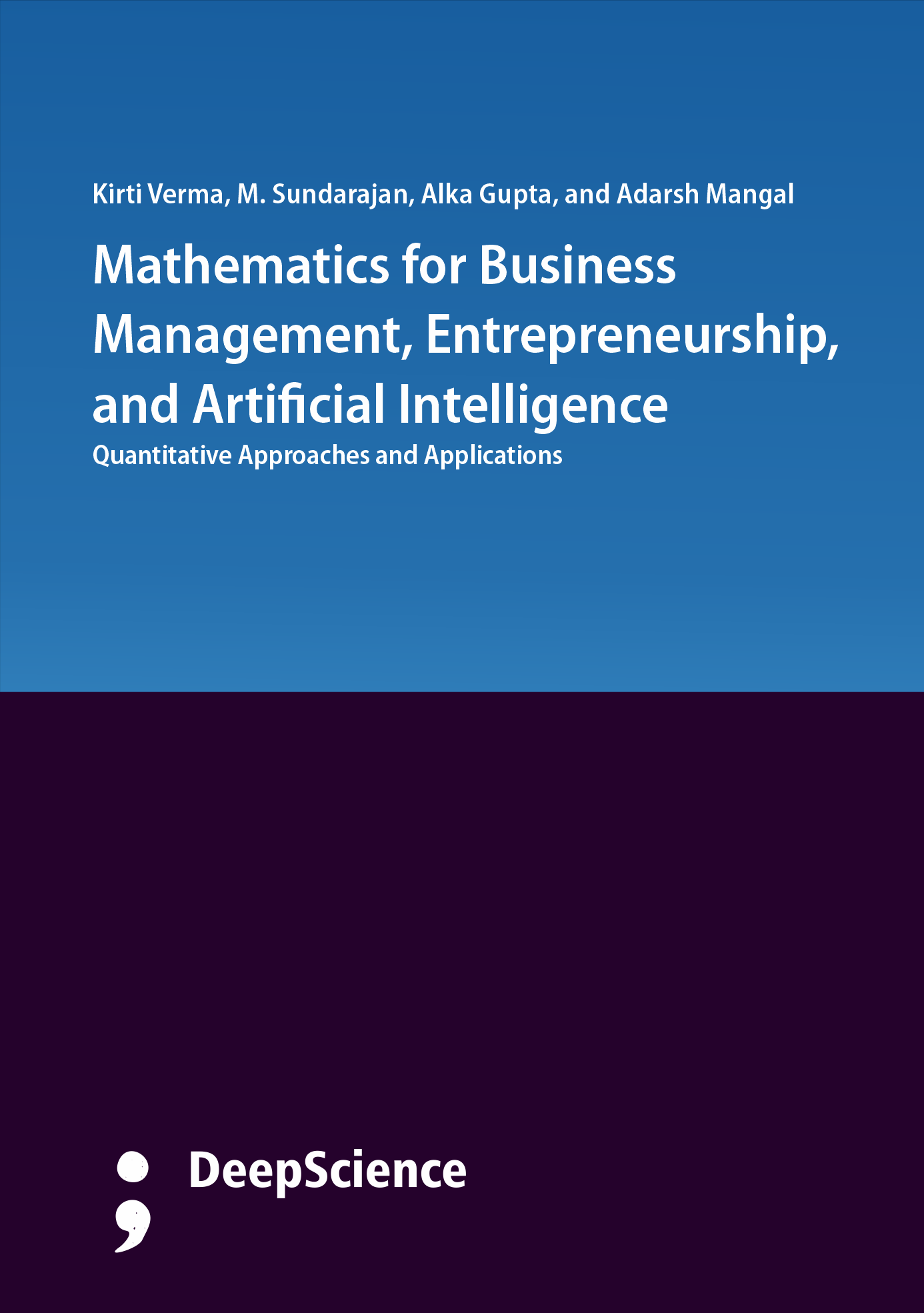Mathematics for Business Management, Entrepreneurship, and Artificial Intelligence: Quantitative Approaches and Applications
Keywords:
Mathematical Optimization, Predictive Analytics, Business Decision-Making, Artificial Intelligence, Machine Learning, Smart CitiesSynopsis
Mathematics is not only becoming a fundamental subject but day by day it is transforming into an active tool used to drive creativity, productivity and long term strategic planning in the dynamic world of business and entrepreneurship. With the increasing maturity of digital technology, programmable systems and global commercial environments, novel mathematical methods are increasingly important in forecasting business performance.
This book aspires to unveil this new trend of applying some advanced mathematical knowledge into the corporate strategies of our century. Mathematics is used in various fields that result in big decisions by entrepreneurs, from statistical methods and predictive models to optimization algorithms and financial predictions. The revolutionary impact of mathematical applications on risk management, the optimization of supply chains, market analysis or the creation of a startup is what this research should bring us to think about. This book bridging layers from abstract algebra results to practical applications in industry and this is the main contribution of the present study, which includes general proofs as well as case studies.
We emphasize recent developments, and the financial engineering, block chain technology, artificial intelligence (AI) and data analytics are few examples. This study also contributes to the opening-up of an interdisciplinary approach in which would-be entrepreneurs as well business managers are given the necessary grounding in mathematical thinking, while taking education to a next stage.
I thank all of the academics, practitioners and educators who have advanced this interdisciplinary subject and whose work motivates creativity in mathematics and business.
References
Byrnes, J. P. (2023). Cognitive Development and Learning in Instructional Contexts (5th ed.). Routledge.
Tidd, J., & Bessant, J. (2021). Managing Innovation: Integrating Technological, Market and Organizational Change (7th ed.). Wiley.
Hisrich, R. D., Peters, M. P., & Shepherd, D. A. (2022). Entrepreneurship (12th ed.). McGraw-Hill Education.
Domingos, P. (2021). The Master Algorithm: How the Quest for the Ultimate Learning Machine Will Remake Our World. Basic Books.
Brealey, R. A., Myers, S. C., & Allen, F. (2022). Principles of Corporate Finance (14th ed.). McGraw-Hill Education.
OECD. (2021). Entrepreneurship Education in the Digital Age. OECD Publishing. https://doi.org/10.1787/9789264346416-en
Amara, M., & Henry, C. (2023). Mathematical models for innovation ecosystems: A startup growth perspective. Journal of Business Research, 159, 113128. https://doi.org/10.1016/j.jbusres.2023.113128













